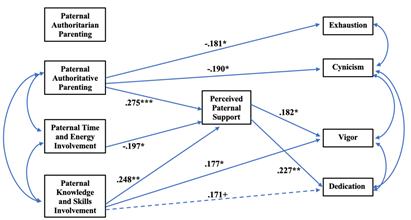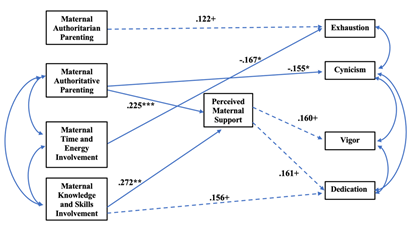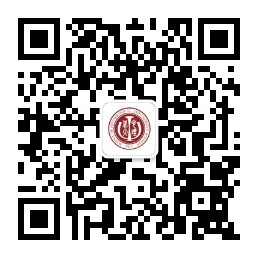Previously, college entrance examination enrollment is in full swing. People envy the high-score candidates: How are those children taught and educated? In this view, our question is, how parents can promote high school students’ learning?
In research, academic engagement and academic burnout are very important indicators to predict high school students' academic success. This study reveals that parenting styles and parental involvement have an impact on high school students' academic engagement and burnout, and the key point is the perceived parental support. The authoritarian parenting and parents' knowledge and skills involvement in education would make students perceive more support, thus they would engage more in learning and get less burnout (the role of mother's support is marginal significant). However, the influence from two parents is different. For example, more detailed analysis found that perceived support from the father is more likely to bring academic engagement. Moreover, fathers have different influences on boys and girls. For example, for boys, the father's time and energy involvement in education makes boys feel less support. Therefore, Chinese families should pay attention to high school students’ development needs and gender roles, and teach them in accordance with their aptitude.


On March 10th, 2021, a new study of “The impact of maternal and paternal parenting styles and parental involvement on Chinese adolescents’ academic engagement and burnout” was published in Current Psychology by Dr. Jiajin Tong, assistant professor of School of Psychological and Cognitive Sciences, Peking University. This research received financial support from the Foundation of Beijing Key Laboratory of Behavior and Mental Health.
Research Link: https://links.springer.com/article/10.1007%2Fs12144-021-01611-z
Zhu, Q., Cheong, Y., Wang, C., & Tong, J.* (2021). The impact of maternal and paternal parenting styles and parental involvement on Chinese adolescents’ academic engagement and burnout. Current Psychology. DOI: 10.1007/s12144-021-01611-z


